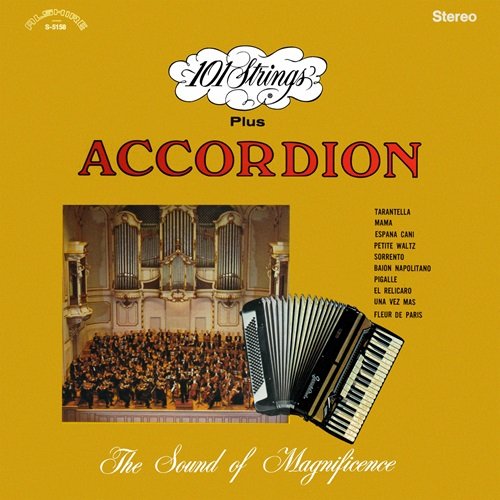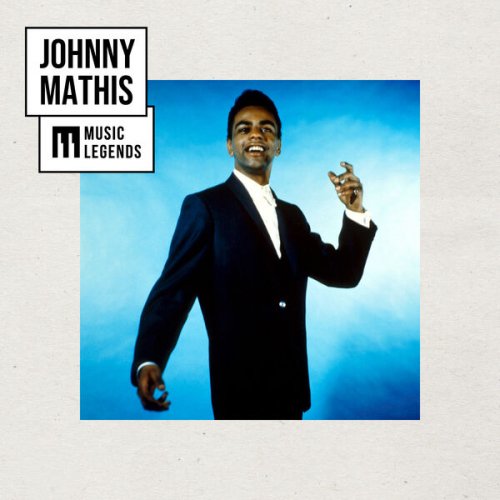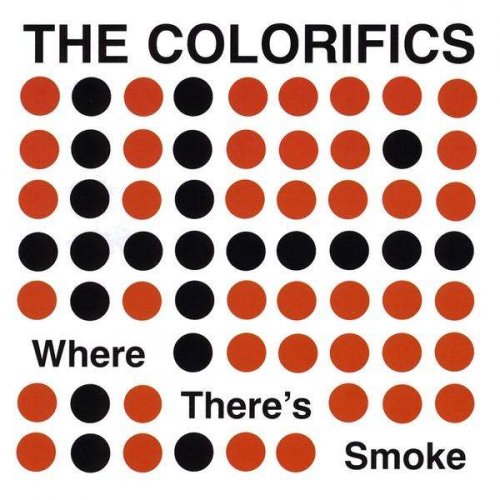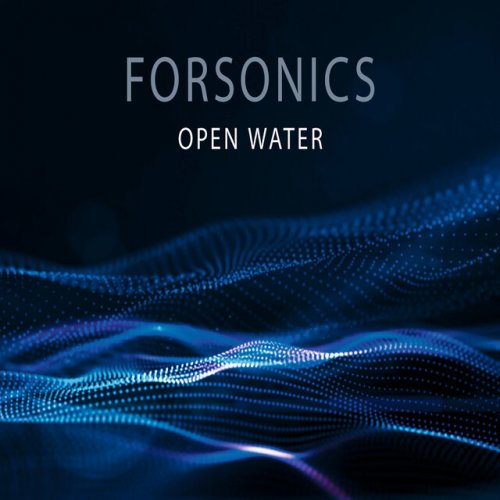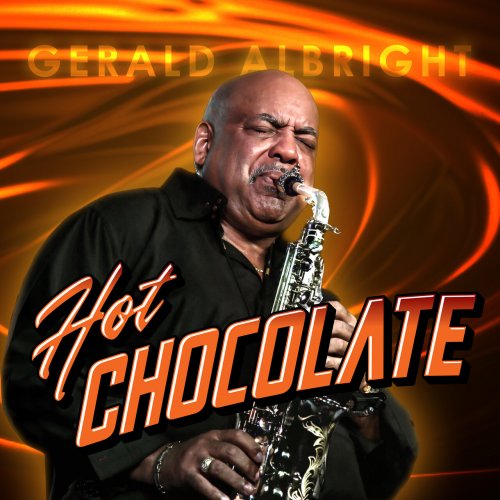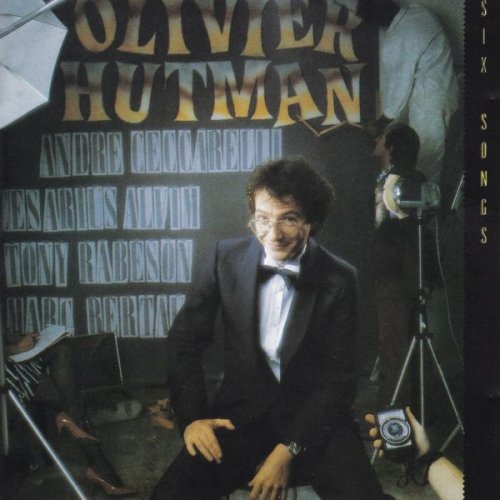Piano Duo Genova & Dimitrov - Martinů, Schnittke: Concertos for Two Pianos (2002)
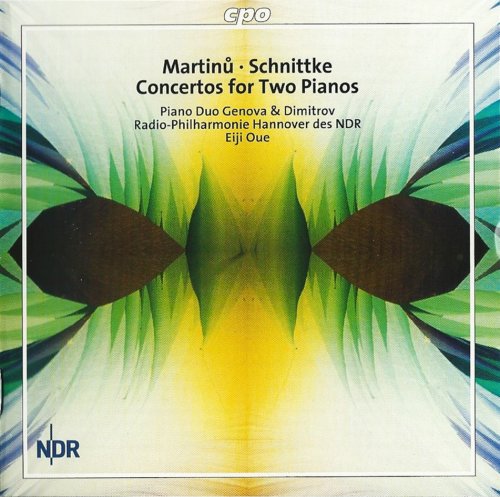
Artist: Piano Duo Genova & Dimitrov
Title: Martinů, Schnittke: Concertos for Two Pianos
Year Of Release: 2002
Label: CPO
Genre: Classical
Quality: FLAC (image+.cue,log,scans)
Total Time: 54:01
Total Size: 241 Mb
WebSite: Album Preview
Tracklist: Title: Martinů, Schnittke: Concertos for Two Pianos
Year Of Release: 2002
Label: CPO
Genre: Classical
Quality: FLAC (image+.cue,log,scans)
Total Time: 54:01
Total Size: 241 Mb
WebSite: Album Preview
01. Martinu - Concerto for Two Pianos and Orchestra: I. Allegro Non Troppo [0:06:09.64]
02. Martinu - Concerto for Two Pianos and Orchestra: II. Adagio [0:09:59.72]
03. Martinu - Concerto for Two Pianos and Orchestra: III. Allegro [0:07:37.17]
04. Schnittke - Concert for Piano Four-Hands and Chamber Orchestra [0:19:46.06]
05. Schnittke - Hommage a Grieg [0:05:24.45]
06. Schnittke - Polyphonischer Tango [0:05:06.34]
Performers:
Duo Genova & Dimitrov
Kathrin Rabus - violin
Radio-Philharmonie Hannover des NDR
Eiji Oue – conductor
Despite the poor choice of couplings, this disc contains outstanding performances of both major works. The Clinton-Narboni Duo on Elan recently set the standard in Martinu's wonderful Concerto for Two Pianos, but this performance is every bit as good, and happily quite different. Rather than the chamber orchestra featured on Elan, Genova and Dimitrov enjoy the backing of a full ensemble, and what they sacrifice in the finer points of harmonic detail (evident, for example, at the opening of the finale) they more than make up for in sheer adrenalin. The very natural balances also pay major dividends in the atmospheric textures of the long central slow movement. Anyone who loves this work, a genuine masterpiece in Martinu's late style (dating from the same period as the six symphonies), will want to hear both recordings.
Schnittke's Concerto for Piano four-hands and Chamber Orchestra sits uneasily beside the Martinu, which really is a much better piece all around. Without getting judgmental about the differences in stylistic orientation, Schnittke's stream-of-consciousness collage approach to matters of form in this 20-minute, single-movement work sounds shapeless and disorganized following Martinu's tightly structured and inventive pattern-making. Simple harmonies and tunes, seemingly tossed at random into a dissonant pot, crash into chaotic episodes of raucous noise, punctuated by the recurring sounds of deep bells à la the finale of Mahler's Sixth. There's one particularly effective climax at the concerto's center, in which the pianists attack a dissonant version of something that suspiciously recalls the final section of Gershwin's Rhapsody in Blue; but the piece ends, as do so many of this composer's late works, in a fog of black nothingness, its ultimate effect just plain depressing.
I happened to be present at the premiere of Hommage à Grieg in Bergen, Norway in the early 1990s. Schnittke, already terribly ill from several major heart attacks, was in the audience as well, looking very sad and very sick. He received a generous ovation, and rightly so, but the work itself is a sweet, sad, five-minute piece of fluff that singularly fails to evoke Grieg in any special way (despite the obvious reference to the first bars of Solveig's Song from Peer Gynt at the very opening). Polyphonic Tango, however, though even shorter than the Hommage, has far more fire in its belly, and of all the works here reveals this composer at his considerable best: grim, funny, sonically inventive, and full of surprises. Schnittke always makes good musical points in tango rhythm. As mentioned above, the performances are excellent in every way, and superbly recorded. This disc doesn't really "work" as a whole, but taken individually it's got some terrific parts. -- David Hurwitz
Schnittke's Concerto for Piano four-hands and Chamber Orchestra sits uneasily beside the Martinu, which really is a much better piece all around. Without getting judgmental about the differences in stylistic orientation, Schnittke's stream-of-consciousness collage approach to matters of form in this 20-minute, single-movement work sounds shapeless and disorganized following Martinu's tightly structured and inventive pattern-making. Simple harmonies and tunes, seemingly tossed at random into a dissonant pot, crash into chaotic episodes of raucous noise, punctuated by the recurring sounds of deep bells à la the finale of Mahler's Sixth. There's one particularly effective climax at the concerto's center, in which the pianists attack a dissonant version of something that suspiciously recalls the final section of Gershwin's Rhapsody in Blue; but the piece ends, as do so many of this composer's late works, in a fog of black nothingness, its ultimate effect just plain depressing.
I happened to be present at the premiere of Hommage à Grieg in Bergen, Norway in the early 1990s. Schnittke, already terribly ill from several major heart attacks, was in the audience as well, looking very sad and very sick. He received a generous ovation, and rightly so, but the work itself is a sweet, sad, five-minute piece of fluff that singularly fails to evoke Grieg in any special way (despite the obvious reference to the first bars of Solveig's Song from Peer Gynt at the very opening). Polyphonic Tango, however, though even shorter than the Hommage, has far more fire in its belly, and of all the works here reveals this composer at his considerable best: grim, funny, sonically inventive, and full of surprises. Schnittke always makes good musical points in tango rhythm. As mentioned above, the performances are excellent in every way, and superbly recorded. This disc doesn't really "work" as a whole, but taken individually it's got some terrific parts. -- David Hurwitz
DOWNLOAD FROM ISRA.CLOUD
Piano Duo Genova & Dimitrov Martinů Schnittke Concertos for Two Pianos 02 0701.rar - 241.1 MB
Piano Duo Genova & Dimitrov Martinů Schnittke Concertos for Two Pianos 02 0701.rar - 241.1 MB
![Mammal Hands - Becoming (2018) [Hi-Res] Mammal Hands - Becoming (2018) [Hi-Res]](https://www.dibpic.com/uploads/posts/2023-01/1673772235_cover.jpg)
